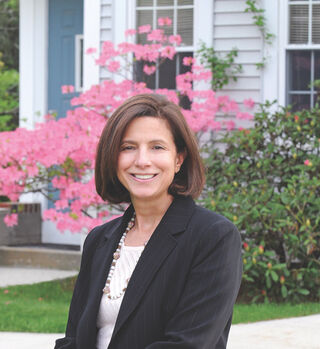Grief
Hope Sings
A Cuban refugee finds solace in her father's 40 canaries.
Posted March 24, 2021 Reviewed by Ekua Hagan

By Ana Hebra Flaster
I call Papi every night so he can talk. My father’s pretty deaf, so it’s easier if I just listen to these 45-minute-long nightly monologues. Sometimes, I forget and try to ask a question. Usually, it's easy to lose myself in Papi’s stories about our old lives in Cuba and his years of playing Triple-A baseball in the U.S. My goal is to distract him, keep his mind off COVID-19, the turmoil roiling in our country, the hate—the uncertainty of it all. This cocktail of woe reminds him of another time in his life when his world fell apart.
My parents fled Cuba—and the revolution they’d once supported—in 1967 when I was five years old. We arrived in the U.S. as political refugees and ended up in Nashua, New Hampshire. The state motto, “Live Free or Die,” sounded like a hymn to my parents. It was also comforting that Canada was so close they could almost see the border. If Communism spread to the U.S., they’d have a way out. Once you’ve lived through a revolution gone awry, you always have a Plan B.
Papi lives just a few towns north of Nashua now. He’s 87 years old, a grieving widower and former factory worker, living alone in a town with almost no Latinos and only a handful of people who understand his whacky English. Mami was nine years younger, but the universe didn’t care. She died six years ago, another beautiful soul snatched by the cancer bitch. So Papi lives on his memories, Meals on Wheels, and visits from family and old friends.
As the oldest child, I’ve taken on the role of supreme fixer. I solve problems real and imagined, boss my brother and sister around, and try to guide Papi toward health and contentment. Even before the pandemic, this was like riding a sidewinder missile. He did what he wanted to do—ate too much too fast, dehydrated himself regularly, stopped taking medicine just because, climbed ladders, tinkered with every electrical gadget and motor not just in his house but in his neighbors’. Since the pandemic, I explain, I remind, I pester—to no avail. He forgets his gloves and mask. He visits people who also disrespect the new rules and let him right on in. I’ve almost stopped trying to keeping him safe. Almost. I sneak reminders into our calls when I can, knowing it’s nearly pointless.
Before I can pretend to have our nightly conversation tonight, I have to get him to turn down the TV, which he keeps at an ear-splitting volume. I cup my hand over the speaker and yell: ¡Baja el volumen!
He shouts back, “¿Qué? ¿Qué?” but eventually comes up with the same idea. “Wait a minute,” he yells, “let me turn this thing down.”
That’s when I hear them, trilling, harmonizing with each other, their songs cascading through the air. Papi’s forty-something canaries are belting out their evening song for the world to hear. The house sounds like a rainforest—chirps, peeps, flapping wings, whistles—a nightly chorus that’s keeping Papi alive during this season of pain.
Just before my mother died, she approved my suggestion that she let Papi breed canaries again. He’d done it as a side hustle to bring in extra money in the ’70s, but Mami started to complain when the number of birds approached 100. He loved them too much to sell them, it turned out. Mami kept after him to reduce the size of the flock, and he sold them all. After she died, we encouraged him to start breeding them again, but Papi couldn’t bring himself to think about canaries. They reminded him of happier days.
My brother snuck a canary into the house, pretending it was a gift for his daughter who was away at school. Could Papi take care of it until she returned from college? Papi didn’t stand a chance. He bought a few more the following week. The breeding began and in no time, he had a small flock of healthy yellow, white and red fluff balls in a floor-to-ceiling aviary in his basement. He kept detailed charts, noting who sang to whom, which females carried straw in their beaks—a sign that they wanted to nest—which males fed their girlfriends broccoli treats, which fathers and mothers were attentive to their chicks. He walked up and down the basement stairs all day long and got in shape again. He had beautiful, innocent beings to protect and nurture. And they sang to him every night.
The canaries lifted him through, if not out of, his grief, and we started to see a glimmer of the old Papi. But after the virus hit, and then the racial unrest, something in Papi started to wither. He talked more about the darkest days after the revolution when everything turned upside down and the impossible notion of leaving family and home behind forever hardened into something real. Then, he announced he was going to sell the birds. All of them. I couldn’t let that happen. How would he fill his days? How would he keep grief and fear at a safe distance?
Papi is on the phone, winding into a new story now, something about a game he pitched in Gainesville in 1955 when he played on the Washington Senator’s farm team. I sneak in a question, asking if he's complying with the COVID protection rules.
“!Sí, sí, sí, he says. "You must drive your husband crazy. Hey, did I tell you I sold ten canaries to the Portuguese guy down the street?”
“What? When?”
“Today. He and his good-for-nothing son-in-law came over. I don’t like that guy. Anyway, I got $30 apiece for the birds. I gave them some star singers…”
I don’t ask if anyone wore a mask because I know the answer, and he knows I’m mad about it. I take a deep breath.
Papi sighs. “Oh, come on. They weren’t here long. We just had a little Cuban coffee in the kitchen—they loved it. Looked at the birds. I gave them some seed just to get them started.”
I try, but it’s no use. I can’t keep it in. I yell into the phone, “You don’t sell canaries in the middle of a pandemic!”
“Why not?” he shouts. “I can’t live the way you want. I have to do something! You have to leave me alone!”
So it goes for a while, and then we stop as a single canary lets loose a bright pink explosion of song that fills Papi’s house and soars through the ether into my ears. Neither one of us talk. We barely breathe, mesmerized by the beauty of the music and the spirit of the creature that is singing.
Finally, the canary’s song dies down, and I dare to ask my question. “Papi, are you going to sell them all?”
“Who said I was selling the birds? You kids are always dramatizing everything.”
I don’t want to remind him that he was the one who brought it up, adamantly. That had been a particularly bad news night, with a new surge of virus cases in the South, more looting, another black man dead after a confrontation with Atlanta police. We wondered out loud to each other, trying to make sense of this new world. After a long pause, he said, “I’m selling my birds. Every single one... What’s the point?”
I should have remembered that life pulls us along, sometimes kicking and dragging, to the next day. We’d crawled out of the darkness after Mami died, thinking we’d never make it. Yet here we are. Facing new pains, uncertainties, and fears. Papi had only threatened to sell his canaries in that bleak moment as we watched the news. Hope had gone someplace else. Now it was back. And the canary in the basement knew it before we did.
Ana Hebra Flaster fled post-revolutionary Cuba with her family, in 1967, when she was five years old. Her writing about Cuba and the Cuban American experience has been featured on NPR, PBS, The Wall Street Journal, The New York Times, and The Boston Globe. She recently completed a memoir about her family’s Cuban American journey. For more, visit her website.




